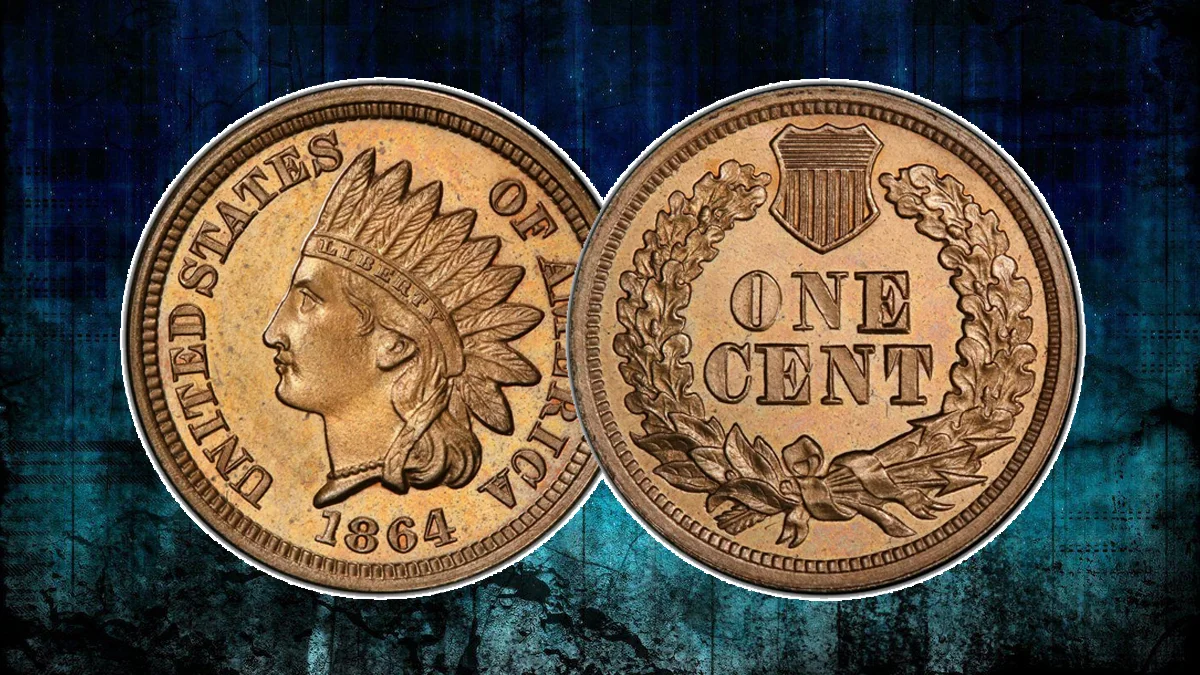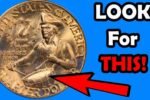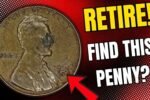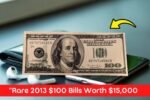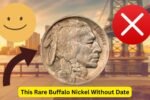9 Rare Pennies of the Twentieth Century That Could Make You Rich: Ever found a penny in your pocket and wondered if it’s worth more than a cent? Some pennies from the 20th century are so rare they’re worth thousands—or even millions! Whether you’re a coin collector or just curious, this guide dives into nine rare pennies that every numismatist dreams of finding. Stick around to learn their stories, values, and how to spot them.
What Are Rare Pennies?
Rare pennies are U.S. one-cent coins that stand out due to their scarcity, minting errors, or historical significance. Unlike common pennies worth just a cent, these treasures can fetch jaw-dropping prices at auctions. From low mintage to unique errors, these coins captivate collectors and hobbyists alike.
The History of U.S. Pennies
The U.S. penny, officially called a “cent,” has been around since 1793. Over the 20th century, designs evolved from the Indian Head to the iconic Lincoln cent. Major redesigns happened in 1909, marking Lincoln’s centennial, and during World War II, when copper shortages led to unique steel pennies. These shifts created some of the rarest coins in history.
Why These Pennies Are So Valuable
Rare pennies gain value from:
- Low Mintage: Fewer coins minted mean higher rarity.
- Minting Errors: Mistakes like double dies or wrong metals make coins unique.
- Historical Context: Coins tied to events like WWII are prized.
- Condition: Uncirculated coins with original luster fetch top dollar. Collectors hunt these coins, driving prices up, sometimes to millions
9 Rare Pennies of the Twentieth Century
Here are nine of the most coveted pennies from the 20th century, each with a unique story and value.
1. 1909-S VDB Lincoln Cent
- Mintage: 484,000
- Value: $1,000–$100,000+
- Why It’s Rare: This Lincoln cent, designed by Victor David Brenner, featured his initials “VDB” on the reverse. Public backlash led to their removal, making the San Francisco-minted version ultra-rare.
2. 1943-D Bronze Lincoln Cent
- Mintage: ~20
- Value: Up to $1.7 million
- Why It’s Rare: During WWII, pennies were made of steel to save copper. A few bronze planchets were accidentally used, creating this “holy grail” of pennies. Only one from Denver is known.
3. 1958 Doubled Die Lincoln Cent
- Mintage: 3 known
- Value: $300,000–$1.1 million
- Why It’s Rare: This coin features strong doubling in “LIBERTY” and “IN GOD WE TRUST.” Only three exist, making it a mega-rarity.
4. 1909-S Head Penny
- Mintage: 309,000
- Value: $300–$1,000+
- Why It’s Rare: The last year of the Indian Head design, this San Francisco coin had low mintage, marking the transition to Lincoln cents.
5. 1922 No D Lincoln Cent
- Mintage: Unknown (few known)
- Value: $500–$10,000+
- Why It’s Rare: A worn die at the Denver Mint left some pennies without the “D” mintmark, creating a rare error coin.
6. 1955 Doubled Die Lincoln Cent
- Mintage: ~20,000
- Value: $1,000–$50,000+
- Why It’s Rare: A die misalignment caused dramatic doubling on “LIBERTY” and the date, making this error coin a collector’s favorite.
7. 1969-S Doubled Die Lincoln Cent
- Mintage: Few known
- Value: $50,000–$1 million
- Why It’s Rare: This coin shows clear doubling on the obverse. Initially thought to be counterfeit, only a handful are confirmed authentic.
8. 1944 Steel Lincoln Cent
- Mintage: Few known
- Value: $75,000–$100,000+
- Why It’s Rare: After switching back to copper in 1944, a few steel planchets from 1943 were mistakenly used, creating this rare error.
9. 1931-S Lincoln Cent
- Mintage: 866,000
- Value: $65–$15,000+
- Why It’s Rare: Low mintage during the Great Depression makes this San Francisco coin scarce, especially in mint condition.
| Penny | Mintage | Value Range | Key Feature |
|---|---|---|---|
| 1909-S VDB Lincoln | 484,000 | $1,000–$100,000+ | Designer’s initials on reverse |
| 1943-D Bronze Lincoln | ~20 | Up to $1.7 million | Bronze error during steel year |
| 1958 Doubled Die Lincoln | 3 known | $300,000–$1.1 million | Strong doubling on obverse |
| 1909-S Indian Head | 309,000 | $300–$1,000+ | Last year of Indian Head design |
| 1922 No D Lincoln | Unknown | $500–$10,000+ | Missing “D” mintmark |
| 1955 Doubled Die Lincoln | ~20,000 | $1,000–$50,000+ | Prominent doubling error |
| 1969-S Doubled Die Lincoln | Few known | $50,000–$1 million | Doubling on obverse, rare error |
| 1944 Steel Lincoln | Few known | $75,000–$100,000+ | Steel error in copper year |
| 1931-S Lincoln Cent | 866,000 | $65–$15,000+ | Low mintage during Depression |
How to Start Collecting Rare Pennies
Ready to hunt for these treasures? Here’s how:
- Check Your Change: Rare pennies can still be found in circulation.
- Visit Coin Shops: Reputable dealers often have rare coins.
- Attend Auctions: Major auction houses like Heritage Auctions sell high-value pennies.
- Use a Coin Guide: Books or apps can help identify rare dates and errors.
- Get Coins Graded: Professional grading (e.g., PCGS, NGC) ensures authenticity and value.
| Method | Pros | Cons |
|---|---|---|
| Checking Change | Free, exciting | Low odds of finding rare coins |
| Coin Shops | Expert advice, variety | Higher cost for rare finds |
| Auctions | Access to top-tier coins | Competitive, expensive |
| Coin Guides/Apps | Easy identification | Requires learning curve |
| Professional Grading | Ensures authenticity, boosts value | Costly, time-consuming |
Fascinating Facts About Rare Pennies
- The 1943-D Bronze Penny sold for $1.7 million in 2010, making it the most expensive penny ever.
- The 1909-S VDB caused a public outcry over Brenner’s initials, leading to their quick removal.
- Only three 1958 Doubled Die pennies are known, making them scarcer than most.
- The 1969-S Doubled Die was once mistaken for a counterfeit, adding to its mystique.
- Pennies from the San Francisco Mint (“S” mintmark) are often rarer due to lower mintages.
Expert Tips for Coin Collectors
- Inspect Carefully: Use a magnifying glass to spot errors like doubling or missing mintmarks.
- Focus on Condition: Uncirculated coins with original copper-red color are worth more.
- Research Values: Check recent auction prices on sites like Heritage Auctions or PCGS.
- Store Properly: Use coin holders to preserve condition and value.
- Join a Community: Connect with numismatic groups for tips and trades.
Conclusion
Rare pennies of the 20th century are more than pocket change—they’re pieces of history that can be worth a fortune. From the 1909-S VDB to the 1943-D Bronze, these coins tell stories of minting mishaps and historical moments. Start checking your change, visit a coin shop, or dive into numismatics to join the hunt. Share this post with fellow collectors, and let us know in the comments if you’ve found a rare penny!
